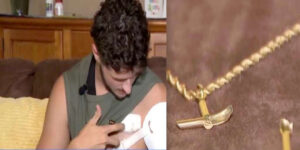Church of God Debates Role of Women
Delegates at the Church of God (Cleveland, Tenn.) biennial convention in Orlando, Fla., last week affirmed the role of women in ministry but remained divided on whether they should ascend into higher areas of leadership.
Attendees at the 73rd International General Assembly passed by a narrow 58 votes a resolution allowing women to serve on congregation-level advisory boards called church and pastors’ councils. But a separate measure seeking the ordination of women as bishops was struck down by a wide margin. Some 62 percent of the bishops on the church’s General Council opposed the change, preventing the measure from reaching the floor for a general vote.
The Pentecostal denomination permits women to be pastors but not to serve on governing boards such as the Executive Council, which runs the denomination’s daily operations. Council members must be ordained bishops.
Opponents of the changes in women’s roles cited biblical passages such as 1 Timothy 3, which they say promotes male headship in the church and the home. The Church of God’s first general overseer, A.J. Tomlinson, taught that women could preach but interpreted Paul’s admonition in 1 Corinthians 14 for women to keep silent in the church to mean they should refrain from church business. The denomination also affirms male headship in the home.
“If we believe in the home that those roles are valid and the same scriptures that teach that those scriptures are valid in the home also teach that there’s a separation of authority in the church, then I don’t see how we can undermine the one without undermining the other,” said Britt Peavy, senior pastor of West Ward Church of God in Douglas, Ga.
“This has nothing to do with women not being smart enough or good enough or qualified enough,” he added. “The issue is, Did God know what He was talking about? And whether we like it or don’t like it … if our rules, our standard, is biblical text, then we have to be faithful to biblical text even in a contemporary society that sees it as bigoted or old-fashioned.”
Cheryl Bridges Johns, Ph.D., professor of discipleship and Christian formation at the Church of God’s Pentecostal Theological Seminary, said she was shocked that there was so little support for ordaining women as bishops. She said the debate shows a doctrinal tension between the denomination’s holiness and fundamentalist influences.
“The holiness churches were the first to see that the issue of slavery and that of women were to be read with the same scriptural hermeneutic, namely that in Christ there was established the seed bed for restoration of a new order of humanity in which slaves were liberated and women set free,” Johns said during floor debates over women in leadership.
“For that reason, the churches out of the holiness revival have always given women full liberty as administrators, pastors, teachers. At this General Assembly I have been made acutely aware that the baptistic-fundamentalist strand in the Church of God has won the day over its holiness roots.”
Peavy worries that some supporters of women in leadership are elevating cultural concerns over biblical teaching, which he says could cause the church to lose its way.
“Once a church makes their core values social issues rather than Scriptural fidelity, then it’s real easy for them to [accept] things like homosexuality … and actually believe that they are being faithful to a core value,” he said, pointing to the United Methodist and Episcopal churches, which in recent years have been rocked by debates over ordaining gay clergy.
Some of the push for change came from congregations outside the U.S., Johns said, noting that women in Latin America in particular are leading churches and calling for greater inclusion.
With more than 80 percent of the Church of God’s nearly 7 million members living outside the U.S., Johns believes the denomination is facing a growing tension. “The question for the church is, Is it a U.S., Southeastern-based church with mission around the world, or is it an international, global, missional movement?” Johns said. “And I think the issue of women is tied to that.”
But she isn’t optimistic the denomination will ordain women as bishops any time soon. “With such a high percentage of people against it, you can’t just say we’re going to bring this back next time,” she said. “It may take a very long time for this to change.”
Saying some of the remarks made during floor debates “discolored” the role of women in ministry, the church’s Executive Committee, led by General Overseer Raymond Culpepper, passed a resolution reaffirming “the value and the historical contribution of women in the life of the Church of God.”
The measure also resolved that more leadership opportunities be offered to women “in light of their spiritual gifts and to establish a foundation for the future involvement, training and recognition of young women growing up in the church.”
Although she said the resolution would go a long way toward healing rifts created last week, Johns said the votes could have lasting resonance in the U.S. Women have more ministry options today than they did in past generations, she said, and those attending the Church of God’s seminary are looking for greater affirmation from the church.
“I think many of them feel betrayed—not only by the actions of the General Assembly but by some of the language of the assembly that was quite derogatory toward women as a whole,” said Johns, who with her husband leads a group called Free Our Church of God Women to Serve. “So I’ve got to do a lot of damage control.”
Roughly 14,000 people reportedly attended the convention each night, with featured guests including Samaritan’s Purse founder Franklin Graham and Grammy-winning worship leader Israel Houghton.
Although the women issue dominated much of the church business, the delegates also extended the tenure of elected officials from four consecutive years to eight and re-elected its five-member Executive Committee to serve a second two-year term. Led by Culpepper, the board also includes Timothy M. Hill as first assistant general overseer, Mark L. Williams as second assistant, David M. Griffis as third assistant and Wallace J. Sibley as secretary general.
In the last two years, the board reduced the percentage of tithes churches contribute to the denomination. The reduced income has led to a reorganization of its international offices, with the changes largely affecting the youth and evangelism/home missions departments.



























































